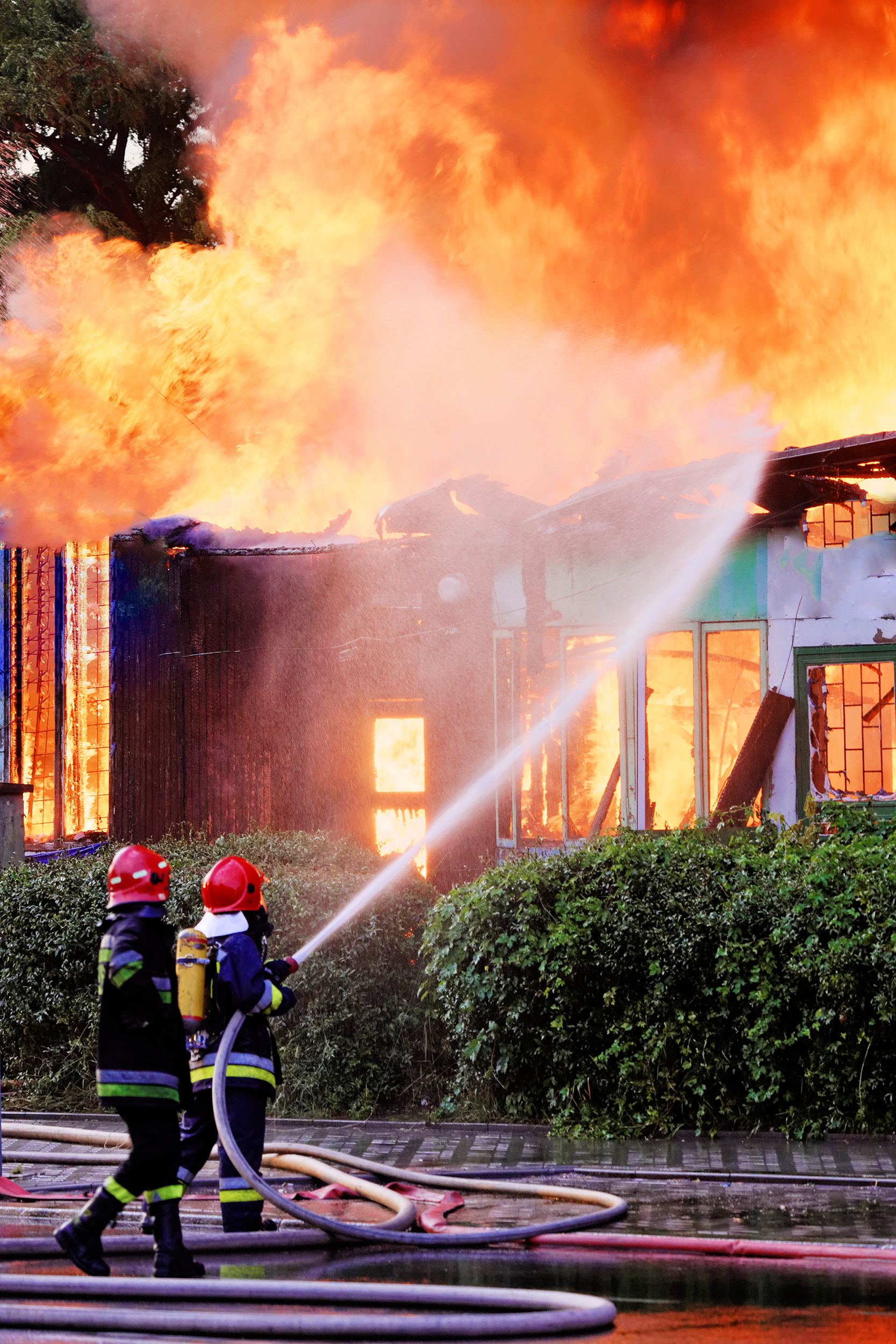All Courses
These courses are co-ordinated & managed by Rightway Risk Management.
Training
Courses
STATIC & RETAIL SECURITY
Course Price - €350 (Deposit €150)
This is a blended learning course that runs over 4 classroom days (usually 2 days per week, for 2 weeks) and the rest is self-study.
For information on upcoming course dates, please contact us or click the link above to book.
This is a part time programme, which necessitates day release or evening-course environment participation. Directed or classroom learning is estimated at approximately 30 hours in total. Typical day release participation will involve candidate commitment of four days. Home study or self-directed learning is an essential feature of this part-time programme. The security industry certification body, the Security Institute, jointly certifies the programme.
Successful completion of this Static and Retail Security Programme can lead directly to employment within the security industry. The award satisfies the training requirements for licensing in the Security Guard (Static) sector as prescribed by the industry regulatory body, the Private Security Authority. This programme includes a comprehensive section on Retail Security.
Those wishing to work within the Door Security (Licensed Premises) or Event Security sectors require a different award and a separate license. The Door Security award is also available through the Security Institute Network of Trainers.
Development of the programme was undertaken in consultation with the Irish Security Industry Association (ISIA), Services, Industrial, Professional and Technical Union (SIPTU), Security Institute Corporate Category (SII) and other key stakeholders. The security industry certification body the Security Institute, carried out national and international research including referencing the EU Komsi Project, the Private Security Authority, Security Industry Authority, British Home Office, Confederation of European Security Services and the Department of American Homeland Security.
This is a single module programme. Therefore, the programme purpose, general aims and outcomes are also the module purpose, general aims and outcomes.
The purpose of this programme is to equip the candidate with the knowledge, skill and competence to work effectively under supervision as a security officer performing practical security duties and procedures and responding to security situations safely and legally in a variety of settings within the static and retail security environments.
On completion of this programme, the candidate will be able to:
• Understand what private security is, its role in society, its sectors and services, including typical guarding company structure and management, company quality service and customer care processes, recognising mandatory regulations and standards, in particular the functions and powers of the regulator.
• Understand the role and responsibilities of the security officer in a range of static and retail security working environments, indicating the characteristics of a professional by maintaining company, client and personal standards, understanding teamworking and developing as an individual.
• Understand the principles of prevention, identifying methods of preventing and reducing loss, including loss through crime, recognising a range of security technology and security hardware products and services which assist with loss and crime prevention.
• Identify those aspects of law relevant to the role of the security officer working in the static and retail security environments, explaining lawful responses to situations such as arrest and trespass, understanding relevant criminal, civil, safety and other codes which may impact on the role, including court processes.
• Apply skills and knowledge to legally, safely and effectively implement practical workplace tasks, describing how to carry out tasks as assigned, acting on initiative, identifying responses to changing and unfamiliar circumstances, including patrolling, controlling and monitoring access and egress, identifying and using appropriate equipment.
• Understand the specific duties and procedures within the retail security environment, including shopping centres, applying the additional skills and knowledge to deal effectively with loss and crime, including risks associated with cash movement.
• Identify what are emergency situations, responding to instructions and / or reacting appropriately to a range of emergency incidents, including fire, accidents, terrorist and other threats, working safely using appropriate emergency equipment, taking responsibility in situations where required, including evacuation, responding to an injured person and scene preservation, while working within the parameters of site and employer policy.
• Demonstrate a range of communication skills relevant to the role of the security officer on site, including interpersonal skills for effective interaction when dealing with others, and those additional skills beneficial when intervening in, or confronted with challenging situations, applying best practice reporting and recording procedures.
• The Private Security Industry
• Customer Care
• Quality Service
• Industry Legislation and Regulation
• The Private Security Officer
• Teamwork Principles
• Loss Prevention and Crime Prevention
• Security Technology
• Security Hardware
• Civil Law and Security
• Criminal Law and Security
• Courts and the Courts System
• Safety, Health and Welfare Legislation
• Equality and Discrimination
• Data Protection
• Environmental Protection
• General Duties and Procedures
• Controlling and Monitoring Access
• Searching
• Patrolling
• Retail Security Procedures
• Emergencies and Emergency Procedures
• Fire and Fire Procedures
• Terrorist and Extremist Threats
• Documentation
• Recording and Reporting
• Communications
• Conflict Management
To access programmes leading to this award, candidates should have reached the standards of knowledge, skill and competence at Level 3 or Junior Certificate on the National Framework of Qualifications. Achievement of this may be through a formal qualification or relevant life and work experience. This means that entry is largely open to all adult candidates and there are no formal qualifications required to participate.
Candidates are advised that to work within the sector requires a license issued by the Private Security Authority. Licensing conditions prescribed by the Authority include applicants be of good character and are subject to a criminality check.
The Private Security Authority is the regulatory authority for the industry. They have also set criteria for entry onto a programme for the purpose of applying for a licence. These criteria include:
• You are asked to produce a passport or other evidence of identity
• You are asked to provide a utilities bill as evidence of address
• You must be over eighteen years of age
• You must be competent in the English language
There are requirements within the programme and ultimately within employment in the industry to have a working knowledge of the written and spoken English language. English need not be your first language. All prospective candidates will be facilitated to demonstrate their English language competence before the programme commences. The level of English demonstrated must be satisfactory to gain entry onto the course.
Self-directed study is a very important feature of programme success. This is a 100-hour programme of which 30 hours are spent in a classroom environment. The entirety of the programme content will not be covered in this classroom setting. Study must take place away from that environment to achieve success.
The total duration of the programme is 100 hours.
This is broken down as 70 hours self-directed learning or home study and 30 hours face to face classroom-based learning. It is a part time programme; classroom aspects can be delivered on a day release basis for example one day per week for four weeks or as an evening course. Self-directed learning involves 70 hours practice, study and research outside of the classroom.
Delivery of the full programme involves a candidate commitment to both classroom attendance and self-directed learning.
There are two techniques used to assess the programme:
- A one-hour 50 question multi-choice written examination.
- The practical demonstration of three skills.
As this is a part time programme incorporating a substantial element of self- directed learning, a comprehensive 390-page, 100,000-word manual is available to all candidates. For more extensive research and study, access to the Security Institute library is also available.
Assessment samples and guidelines are provided for the written examination and skills demonstrations. Skills demonstrations practice sessions are an inherent part of programme delivery. A study guide sheet is also available.
Trainers and assessors are experienced in dealing with candidates who may feel restricted due to physical, learning or language challenges. Reasonable accommodation processes are in place. It is advisable that candidates discuss these issues with the Institute or an Institute trainer in advance of participation.
While not mandatory, access to, and competency in use of the Internet will benefit candidates. Trainers will provide additional resource references for those who do not have Internet capability.
Candidates may contact the Security Institute directly for any clarification or further information either by phone at 045 409222 or by e-mail at admin@sii.ie
Successful completion of this programme leads to three certificates:
- QQI Special Purpose Award in Security Guarding Skills at Level 4 (10 Credits)
- Security Institute of Ireland Certificate in Static Security
- Security Institute of Ireland Certificate in Retail Security

BASIC GUARDING SKILLS
(STATIC & RETAIL)
This course is co-ordinated & managed by Rightway Risk Management and certified by The Security Institute of Ireland. This vocational qualification was developed for those seeking a career within the Static and Retail sectors of the private security industry in Ireland. Successful completion can lead directly to employment within the security industry as the award satisfies the training requirements for licensing in the Security Guard (Static) sector as prescribed by the industry regulatory body, the Private Security Authority. Those wishing to work within the Door Security (Licensed Premises) sector require a different award and a separate licence. The Door Security award is also available through the Security Institute. The aim of this course is to equip the learner with the knowledge, skill, and competence to work under supervision as a security officer performing practical security duties and procedures and responding to security situations in a variety of settings including static and the retail industry.
The Private Security Authority are the regulatory authority for the industry and may from time to time set criteria for licencing, this can include:
- You may be asked to produce a passport or other evidence of identity
- You may be asked to provide an utilities bill as evidence of address
- You must be over eighteen years of age
- You must be competent in the English language
Learners have 21 days to complete their studies online. The 21 days commences from the learner’s first log in to the course platform. Study is self-directed, it is for learners to determine their own schedule. The Security Institute maintains a record of date and time of learner log in for quality control and internal verification purposes.
DOOR & EVENT SECURITY
Course Price - €350 (Deposit €150)
This is a blended learning course that runs over 4 classroom days (usually 2 days per week, for 2 weeks) and the rest is self-study.
For information on upcoming course dates, please contact us or click the link above to book.
This is a part time programme, which necessitates day release or evening-course environment participation.
Directed or classroom learning is estimated at approximately 40 hours in total.
Typical day release participation will involve candidate commitment of six days. Home study or self-directed learning is an essential feature of this part-time programme. The security industry certification body, the Security Institute, jointly certifies the programme.
Successful completion of this Door and Event Security Programme can lead directly to employment within the security industry. The award satisfies the training requirements for licensing in the Door Security and Event Security sectors as prescribed by the industry regulatory body, the Private Security Authority. This programme includes a comprehensive section on Physical Intervention.
Those wishing to work within the Security Guard (Static) sector require a different award and a separate license. The Security Guard (Static) award is also available through the Security Institute Network of Trainers.
Development of the programme was undertaken in consultation with the Irish Security Industry Association (ISIA), Services, Industrial, Professional and Technical Union (SIPTU), Security Institute Corporate Category (SII) and other key stakeholders. The security industry certification body the Security Institute, carried out national and international research including referencing the EU Komsi Project, the Private Security Authority, Security Industry Authority, British Home Office, Confederation of European Security Services and the Department of American Homeland Security.
This is a single module programme. Therefore, the programme purpose, general aims and outcomes are also the module purpose, general aims and outcomes.
The purpose of this programme is to equip the candidate with the knowledge, skill and competence to work effectively under supervision as a security officer performing practical security duties and procedures and responding to security situations safely and legally in a variety of settings within the door and event security environments.
On completion of this programme, the candidate will be able to:
• Understand what private security is, its role in society, its sectors and services, including typical company structure and management, company quality service and customer care processes, recognising mandatory regulations and standards, in particular the functions and powers of the regulator.
• Understand the role and responsibilities of the security officer in a range of door and event security working environments, indicating the characteristics of a professional by maintaining company, client and personal standards, understanding teamworking and developing as an individual.
• Understand the principles of prevention, identifying methods of preventing and reducing loss, including loss through crime, recognising a range of security technology and security hardware products and services which assist with loss and crime prevention.
• Identify those aspects of law relevant to the role of the security officer working in the door and event security environments, explaining lawful responses to typical situations, understanding relevant criminal, civil, safety and other codes, including those which directly impact on the role, including court processes.
• Apply skills and knowledge to legally, safely and effectively implement practical workplace tasks, describing how to carry out tasks as assigned, acting on initiative, identifying responses to changing and unfamiliar circumstances, including controlling and monitoring access and egress, searching, identifying and using appropriate equipment.
• Understand the specific duties and procedures within the event security environment, including concerts, festivals and public gatherings, applying the additional skills and knowledge to deal effectively, legally and safely with individuals and crowds entering, remaining on and leaving premises.
• Identify what are emergency situations, responding to instructions and / or reacting appropriately to a range of emergency incidents, including fire, accidents, terrorist and other threats, working safely using appropriate emergency equipment, taking responsibility in situations where required, including evacuation, responding to an injured person and scene preservation, while working within the parameters of venue policy.
• Demonstrate a range of communication skills relevant to the role of the door and event security officer on duty, including interpersonal skills for effective interaction when dealing with others, and those additional skills beneficial when intervening in, or confronted with challenging situations, applying best practice reporting and recording procedures.
• Demonstrate a range of skills relevant to the role of the door and event security officer on duty when confronted with uncooperative, non-compliant and / or violent situations and individuals, intervening safely and legally and in compliance with venue policy.
• The Private Security Industry
• Customer Care
• Quality Service
• Industry Legislation and Regulation
• The Private Security Officer
• Teamwork Principles
• Loss Prevention and Crime Prevention
• Security Technology
• Security Hardware
• Civil Law and Security
• Criminal Law and Security
• Door and Event Specific Legislation and Regulations
• Courts and the Courts System
• Safety, Health and Welfare Legislation
• Equality and Discrimination
• Data Protection
• Environmental Protection
• General Duties and Procedures
• Door Security Procedures
• Controlling and Monitoring Access
• Searching
• Event Security Procedures
• Drug and Alcohol Awareness
• Crowd Control
• Emergencies and Emergency Procedures
• Fire and Fire Procedures
• Terrorist and Extremist Threats
• Documentation
• Recording and Reporting
• Communications
• Conflict Management
• Physical Intervention
To access programmes leading to this award, candidates should have reached the standards of knowledge, skill and competence at Level 3 or Junior Certificate on the National Framework of Qualifications. Achievement of this may be through a formal qualification or relevant life and work experience. This means that entry is largely open to all adult candidates and there are no formal qualifications required to participate.
Candidates are advised that to work within the sector requires a license issued by the Private Security Authority. Licensing conditions prescribed by the Authority include applicants be of good character and are subject to a criminality check.
The Private Security Authority is the regulatory authority for the industry. They have also set criteria for entry onto a programme for the purpose of applying for a licence. These criteria include:
• You are asked to produce a passport or other evidence of identity
• You are asked to provide a utilities bill as evidence of address
• You must be over eighteen years of age
• You must be competent in the English language
There are requirements within the programme and ultimately within employment in the industry to have a working knowledge of the written and spoken English language. English need not be your first language. All prospective candidates will be facilitated to demonstrate their English language competence before the programme commences. The level of English demonstrated must be satisfactory to gain entry onto the course.
Self-directed study is a very important feature of programme success. This is a 100-hour programme of which 40 hours are spent in a classroom environment. The entirety of the programme content will not be covered in this classroom setting. Study must take place away from that environment to achieve success.
The total duration of the programme is 100 hours. This is broken down as 60 hours self-directed learning or home study and 40 hours face to face classroom-based learning. It is a part time programme; classroom aspects can be delivered on a day release basis for example one day per week for four weeks or as an evening course. Self-directed learning involves 60 hours practice, study and research outside of the classroom. Delivery of the full programme involves a candidate commitment to both classroom attendance and self-directed learning.
There are two techniques used to assess the programme:
• The practical demonstration of three skills.
• A one-hour 50 question multi-choice written examination.
As this is a part time programme incorporating a substantial element of self- directed learning, a comprehensive 500-page, 150,000-word manual is available to all candidates. For more extensive research and study, access to the Security Institute library is also available.
Assessment samples and guidelines are provided for the written examination and skills demonstrations. Skills demonstrations practice sessions are an inherent part of programme delivery. A study guide sheet is also available.
Trainers and assessors are experienced in dealing with candidates who may feel restricted due to physical, learning or language challenges. Reasonable accommodation processes are in place. It is advisable that candidates discuss these issues with the Institute or an Institute trainer in advance of participation.
Access to, and competency in use of the Internet will benefit candidates. Trainers will provide additional resource references for those who do not have Internet capability.
Successful completion of this programme leads to three certificates:
• QQI Special Purpose Award in Door Security Practice at Level 4 (10 Credits)
• Security Institute of Ireland Certificate in Door Security
• Security Institute of Ireland Certificate in Event Security

DOOR SECURITY PROCEDURES
(DOOR & EVENT)
This course is co-ordinated & managed by Rightway Risk Management and certified by The Security Institute of Ireland.
This vocational qualification was developed for those seeking a career within the door & event sectors of the private security industry in Ireland.
Successful completion can lead directly to employment within the security industry as the award satisfies the training requirements for licensing in the Door Supervisor (DSP) sector as prescribed by the industry regulatory body, the Private Security Authority. Those wishing to work within the static & retail sector require a different award and a separate licence. The Static Security award is also available through the Security Institute.
The aim of this course is to equip the learner with the knowledge, skill, and competence to work under supervision as a security officer performing practical security duties and procedures and responding to security situations in a variety of settings within the door and event sectors.
The Door and Event online programme is presented in twenty-eight sections, under seven parts, as follows:
- The Private Security Industry
- The Private Security Officer
- Loss Prevention
- Legislation and Regulations
- Communications and Conflict Management
- Emergencies and Emergency Procedures
- Security Procedures
Learners have 21 days to complete their studies online. The 21 days commences from the learner’s first log in to the course platform. Study is self-directed, it is for learners to determine their own schedule. The Security Institute maintains a record of date and time of learner log in for quality control and internal verification purposes.
The facilitating trainer will support the learner throughout the process by telephone, e-mail, zoom or skype, whichever is appropriate to the learner’s circumstances.
Successful completion of this programme leads to three certificates:
- QQI Minor Award in Door Security at Level 4
- Security Institute of Ireland Certificate in Door Security
- Security Institute of Ireland Certificate in Event Security
This course also includes three additional certificates at no extra cost:
- Rightway Risk Management Certificate for Manual Handling
- Rightway Risk Management Certificate for Fire Safety
- Rightway Risk Management Certificate for Crowd Management
ADVANCED CERTIFICATE IN SECURITY SUPERVISOR SKILLS
Course Price - €250
Supervision and Team Leadership in the Private Security Industry
For information on upcoming course dates, please contact us or click the link above to book.
This vocational qualification was developed for those wishing to progress their career.
On successful completion learners will work effectively as a supervisor or team leader in a range of diverse, team-oriented security environments. The skills and knowledge acquired are designed to build on existing experiences and activity of those engaged in the area of operational security.
This vocational qualification is designed to enable learners acquire a range of skills and knowledge and competencies in the field of supervision and team leadership in the security industry. Its purpose is to equip the learner with the skills and knowledge required to assist with the delivery of a professional service.
Programme content is directed towards those currently at operational, team leader or supervisory level and those at security officer level seeking to progress their careers.
The recommended total duration of this programme is twelve weeks. Study guidelines are provided to assist learners with study scheduling and project completion.
When stated in terms of hours, learners, depending on their level of knowledge and experience, should consider a commitment of up to 150 hours for study, research and project completion. Learners with extensive experience, knowledge or background in security or any related field may not have to commit to the full duration.
The course is assessed by way of a 3,000 word project; candidates have twelve weeks to complete this project.
A comprehensive manual is provided; this includes a suite of templates. Candidates will also be provided with study and assessment guidelines and a project formatting template.
Successful completion leads to an Advanced Certificate in Security Supervisor Skills. This Certificate is issued by the security industry sector body for education and training, the Security Institute of Ireland.

MANUAL HANDLING
“Manual Handling involves any transporting or supporting of any load by one or more employees, and includes lifting, putting down, pushing, pulling, carrying or moving a load, which by reason of its characteristics or unfavourable ergonomic conditions, involves risk, particularly of back injury, to employees.”
The aim of this course is to provide learners with the knowledge, skills and attitude to understand manual handling and be able to perform manual handling tasks correctly, safely & efficiently!!!
Upon completion of this Manual Handling Training course, participants will be able to:
- Understand the definition of manual handling!
- Have a general understanding of the legal requirements!
- Know and be able to apply the principles of safe movement!
- Understand workplace Ergonomics, identify hazards and assess risks!
All courses are designed by our experienced consultants and delivered by QQI Level 6 qualified & experienced instructors.
Participants who successfully complete this course will be awarded a Manual Handling Certificate of completion issued by Rightway Risk Management. This certificate is valid for three years, and successful participants will be fully compliant with the current legislation on manual handling in the workplace under “The Safety Health & Welfare at Work (General Applications) Regulations 2007”.
This course is available nationwide via
- Remote Training!
- On-Site Training!
FIRE SAFETY
Course Price - €45
In short, the fire safety legislation in Ireland places a duty of care on all individuals who have control over a premise to which the public has access.
The duty of care includes a general obligation of people in control of such a premise to take all reasonable measures to guard against the outbreak of fire.
Fire safety training helps to protect your business. It ensures everyone knows how to act safely, reducing the risk of property damage, injury, or loss of life in the event of a blaze.
Basic fire-fighting techniques can also help to prevent small fires from becoming big emergencies
The aim of this course is to provide you with the Knowledge, skills and
attitude to be able to prevent the outbreak of fire and deal with fires safely.
Upon completion of this Fire Safety Training course, participants will be able to:
- Know and explain the chemistry of fire!
- Have a general understanding of the legal requirements!
- Be able to identify fire hazards & prevent fires!
- Have a general understanding of evacuation & how to extinguish a fire!
All courses are designed by our experienced consultants and delivered by QQI Level 6 qualified & experienced instructors.
Participants who successfully complete this course will be awarded a Fire Safety Certificate of completion issued by Rightway Risk Management. This certificate is valid for three years, and successful participants will be fully compliant with the current legislation on fire safety in the workplace under “The Safety Health & Welfare at Work (General Applications) Regulations 2007” & “The Fire Services Act (1981 & 2003)”.
This course is available nationwide via
- Remote Training!
- On-Site Training!
MANUAL HANDLING
Course Price - €45
“Manual Handling involves any transporting or supporting of any load by one or more employees, and includes lifting, putting down, pushing, pulling, carrying or moving a load, which by reason of its characteristics or unfavourable ergonomic conditions, involves risk, particularly of back injury, to employees.”
The aim of this course is to provide learners with the knowledge, skills, and attitude to understand manual handling and be able to perform manual handling tasks correctly, safely & efficiently!!!
Upon completion of this Manual Handling Training course, participants will be able to:
- Understand the definition of manual handling!
- Have a general understanding of the legal requirements!
- Know and be able to apply the principles of safe movement!
- Understand workplace Ergonomics, identify hazards and assess risks!
All courses are designed by our experienced consultants and delivered by QQI Level 6 qualified & experienced instructors.
Participants who successfully complete this course will be awarded a Manual Handling Certificate of completion issued by Rightway Risk Management. This certificate is valid for three years, and successful participants will be fully compliant with the current legislation on manual handling in the workplace under “The Safety Health & Welfare at Work (General Applications) Regulations 2007”.
This course is available nationwide via
- Remote Training!
- On-Site Training!

FIRE SAFETY
In short, the fire safety legislation in Ireland places a duty of care on all individuals who have control over a premise to which the public has access.
The duty of care includes a general obligation of people in control of such a premise to take all reasonable measures to guard against the outbreak of fire.
Fire safety training helps to protect your business. It ensures everyone knows how to act safely, reducing the risk of property damage, injury, or loss of life in the event of a blaze.
Basic fire-fighting techniques can also help to prevent small fires from becoming big emergencies
The aim of this course is to provide you with the Knowledge, skills and
attitude to be able to prevent the outbreak of fire and deal with fires safely.
Upon completion of this Fire Safety Training course, participants will be able to:
- Know and explain the chemistry of fire!
- Have a general understanding of the legal requirements!
- Be able to identify fire hazards & prevent fires!
- Have a general understanding of evacuation & how to extinguish a fire!
All courses are designed by our experienced consultants and delivered by QQI Level 6 qualified & experienced instructors.
Participants who successfully complete this course will be awarded a Fire Safety Certificate of completion issued by Rightway Risk Management. This certificate is valid for three years, and successful participants will be fully compliant with the current legislation on fire safety in the workplace under “The Safety Health & Welfare at Work (General Applications) Regulations 2007” & “The Fire Services Act (1981 & 2003)”.
This course is available nationwide via
- Remote Training!
- On-Site Training!
Other Courses
Basic Guarding Skills
€350 (Deposit €100)
Door Security Procedures
€350 (Deposit €100)
Combined Static & Door
€550 (Deposit €100)
Manual Handling
€45
Fire Safety
€45
Fire Warden
€45
Abrasive Wheels
€45
People Moving
€60
Instructing Manual Handling
Price Available on Request
Instructing People Moving
Price Available on Request
Instructing Fire Safety
€275
Instructing Abrasive Wheels
€275
P.A.V.A
Price Available on Request
Close Protection
Price Available on Request
Crowd Management
€45

